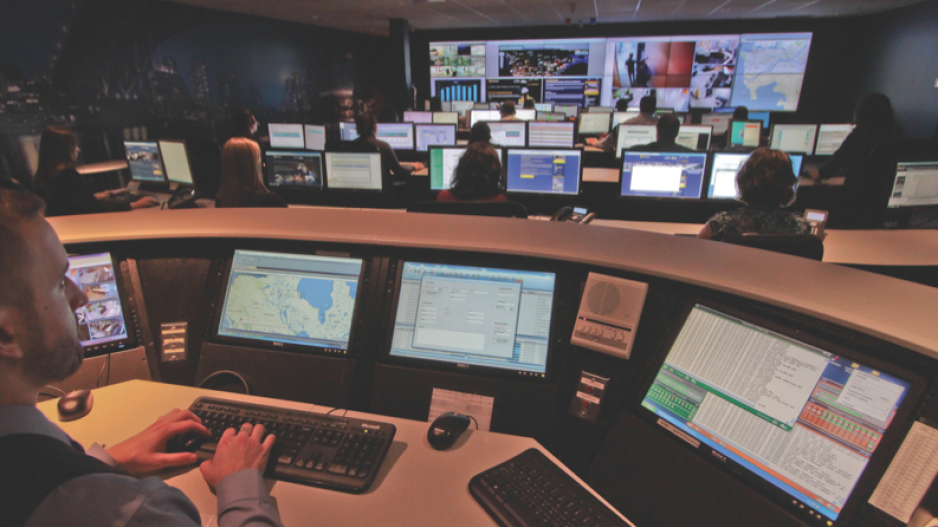Although theft and crime in Vancouver remain a significant issue, city property crime rates have declined, and many industry professionals think the sophistication of technology, along with smarter property protection strategies, is the cause.
“We have access to better tools through staff monitoring software and mobile applications,” says Heather Shubear, vice president of Securiworld.
“More and more of our guards have the ability to do more advanced security on their cellphones and personal devices for more effective reporting.”
Shubear says the advancement of personal technologies is certainly a factor in faster response times and enhanced quality of reporting of employed guards. But as for property security when active workers aren’t on site, one age-old technology seems to be performing very effectively.
“Increasing the lighting almost always stops the attempts of break-ins at bigger projects,” says Shubear.
“Adequate amount of lighting usually helps to deter thefts, and we know that on construction and bigger projects with high amounts of lighting and cameras, it deters people from theft when they feel they are under the spotlight. This also decreases personal attacks.”
According to statistics from the Vancouver Police Department, property crime decreased 1.9 per cent in 2017 from a year earlier. Additionally, break-and-enter business incidents decreased 18.7 per cent and break-and-enter residence incidents decreased by 18.4 per cent.
The decline in property crime, however, might actually be due to the abundance of development happening in the city.
“Some of these older buildings have owners and property managers that are less concerned with the status of the building because they are waiting for a teardown or to be bought out by a wealthy developer,” explains Moe Hedayat, operations manager at Optimum Security.
“New builds endowed with high amounts of wealth will take certain security measures that can be too expensive for others. There is a large amount of situational dependence on what the intention of the owner of that property is.”
There’s no doubt that development in Vancouver is exploding and plots of land are being excavated and constructed faster each year. Some security companies have had to alter their operations in order to be more cost efficient for clients.
“A lot relates to monitoring what is happening in the field. So, we have everything to do with GPS tracking,” says Ashley Meehan, vice-president of Genesis Security Group.
“By having better monitoring, we can see patterns of how and where patrolling is happening more frequently. We offer mobile checks, where if you don’t want to purchase the security guard for the full five-hour shift, you can go for mobile checks,” says Shubear.
“This is a sweep on your property and a foot patrol one to three times per night.”
Regular maintenance and security checks seem to be removing thieves from weak areas they had previously capitalized on, like stairwells, bathrooms and parking lots. However, personal security of automobiles remains a prevalent issue.
According to the Vancouver Police Department, theft from motor vehicles increased by 1.6 per cent in 2017.
Hot zones ■ The Vancouver Police Department’s crime heat map shows the highest areas of commercial property crime are in the central business district, Mount Pleasant and the Gastown-East Hastings areas.
“Technology-based, event-driven solutions driving surveillance and response will enhance the safety and security of [weak] areas,” says Chad Kalyk, executive vice-president of Paladin Security. “Critical to this is the need for the technology to be part of an overall security strategy.”
Much of that technology, professionals agree, should be paired with other tactics.
“You should have cameras and alarms that detect break-in attempts but as often as possible you should try and have physical security reinforcements like deadbolt locks, reinforcing the ground and basement floor windows with steel bars, as well as having a physical guard who is licensed and trained to evict trespassers,” says Shubear.
Meehan agrees having layers of security is key to deterrence.
“What we find is that we are going to a lot more is a combination of where we have cameras that are monitoring with motion sensors so we can pick up movement but also have guards that are on site or nearby that can respond quickly,” Meehan says. In short, both electronic and human eyes on the target.
“Combining technology with a physical presence is much more effective.”




